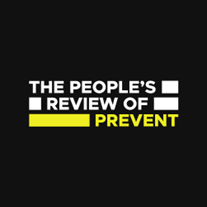Advancing Counter-Terrorism Strategies 2023
Online Conference 18 January 2023, 9:00am - 3:00pm
#igppCTS
9:00am
Online Registration
9:30am
Chair’s Welcome Address
Dr Hillary Briffa, Lecturer in National Security Studies, King’s College London
9:40am
Opening Keynote: What Is Terrorism? Whose Terror; Who Decides?
Professor John Coxhead, International PIEL Centre, University of East London
10:00am
Keynote Address: Highlighting Lessons From The Independent Review Of Prevent
- Uncovering the changes needed to the Prevent strategy to improve resilience, solidarity, and deterring terrorism
- Examining the fundamental objectives of the Prevent programme and how new safeguarding mechanisms can improve its effectiveness
- Engaging with communities to amplify the voices of those most impacted by Prevent and challenge discriminatory processes
- Maintaining a strong commitment to safeguarding those most vulnerable and improving transparency of processes
Professor John Holmwood, Emeritus Professor of Sociology and Social Policy, University of Nottingham and People’s Review of Prevent
10:20am
Case Study: Women in Terrorism: Current Approaches And Gender Stereotypes In Policy
- Conceptions of female militancy and female violence
- How these are entrenched in gender stereotypes
- Media discussions follow these stereotypes, which find their way into law and policy
- Case study of European Parliament’s Report on Female Radicalisation in 2017
Gurpreet Kaur, Counter Terrorism Researcher
10:40am
Questions And Answers Session
11:00am
Break and Networking
11:35am
Keynote Address: Preventing And Countering Violent Extremism In Georgia
- Explore Georgia’s experience with international terrorism and violent extremism – Islamist radicalisation and Georgian FTFs in Syria and Iraq; Right wing mobilisation and Russia’s influence
- Political polarisation as the extremization of political discourses
- Outline of Georgia’s counterterrorism policy and the problem of recognising violent extremism as a national challenge
- Designing effective P/CVE programmes : how to engage stakeholders at national, regional and community levels?
Mariam Tokhadze, Director, Georgian Center for Strategy and Development (GCSD)
11:55am
Keynote Address: Strengthening Counter Terrorism Measures By Recognising It As A Global Threat
- Acknowledging the role of leadership, protecting human rights, and interconnected approaches as part of the shared vision for international counterterrorism adaptation
- Working with states and national programs to strengthen the approach to peace and security responses
- Leveraging the advantages of cooperative delivery, inclusivity, and shared expertise to improve plans for monitoring and countering the evolving terrorism threats
- Considering how Brexit impacts counter-terrorism information sharing across Europe
Melissa Lefas, Chief of Strategy, Global Center on Cooperative Security
12:15pm
Keynote Address: Vulnerability Within Terrorism Prevention: Multi-Agency Counterterrorism
Professor Charlotte Heath-Kelly, Professor of Counterterrorism and Public Policy, University of Warwick
12:35pm
Questions and Answers Session
12:55pm
Lunch And Networking
1:40pm
Keynote Address: Blocking Terrorist Exploitation On Digital Platforms
- Countering the spread of terrorist material through cross-industry collaboration across online platforms
- Committing to prevent terrorists and violent extremists from using web-based payment tools, direct solicitation, and other online facilities
- Delivering the vision of protecting and promoting fundamental universal human rights and the freedom of expression online
- Enhancing technological solutions across the sector, understanding how AI can both tackle terrorist material online but also create unintended consequences
Kabir Taneja, Fellow, Observer Research Foundation
2:00pm
Case Study: Uncovering The Role Of Youth In Preventing Terrorism
- Recognising the threats to young people being targeted by radicalisation and terrorist recruitment
- Understanding the intersection of vulnerabilities causing young people to be disproportionately affected by violent extremism as victims and perpetrators
- Engaging with youth to actively shape counter terrorism programs and policies in alignment with the PREVENT Duty, developing strong rehabilitative and reintegration processes for those who engage in terrorism
- Reinforcing youth employment and social inclusion as a means to reduce marginalisation and victimisation fuelling terrorism across the world
Moussa Bourekba, Researcher, CIDOB (Barcelona Centre for International Affairs)
2:20pm
Lived Experience In Counterterrorism: Benefits And Challenges
- The role of survivors and bereaved families in countering extremism
- How we can better support survivors of terrorism to empower them with the tools to speak out and share their testimony
- What challenges survivors may face in entering this sphere and in seeking to contribute to counterterrorism work
- Initiatives to encourage, amplify, and enable survivors to best spread awareness of their experiences and ensure these stories reach those most at risk of radicalisation
Travis Frain, National Chair, UK Counter Terrorism Youth Advisory Group
2:40pm
Questions And Answers Session
3:00pm
Chair’s Summary And Close
*programme subject to change without notice



